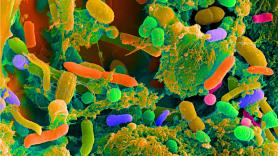On 29 and 30 June 2017, researchers from around the world met for a B·Debate session to review the present and point to the future of the microbiome, the collection of microbes that live in the human intestines. The microbiome is involved in a wide variety of vital functions and has been proven to have an impact on both human health and illness.
Today, the challenge is to understand the relationship between the microbiome and the human body, and how it can be regulated, opening up new opportunities in preventative medicine and for managing chronic illnesses. Other fields, like the food and pharmaceutical industries, can also benefit. New sequencing technology has revolutionized the scene and allowed for profiling and better understanding of the human microbiome.
However, many questions remain unanswered and participants tried to find answers to them at this year’s ‘The Barcelona Debates on the Human Microbiome 2017. From Microbes to Medicines’, organized by B·Debate –an initiative of Biocat and the “la Caixa” Foundation to promote scientific debate– with the IrsiCaixa AIDS Research Institute.
CONCLUSIONS:
- The microbiome is the collection of microbiomes in the human intestines and is involved in numerous vital functions.
- Research in this field currently focuses on understanding the relationship between the microbiome and the human body. And on how to regulate the microbiome, which could open up new opportunities in fields like preventive medicine, chronic illnesses and the pharmaceutical industry.
- New sequencing tools are particularly useful for studying changes to the microbiome, although standardizing processes and processing of the huge amount of data obtained are two major challenges to tackle.
- New treatment strategies for brain disorders will probably include targets and mechanisms associated with the microbiome, as well as changes in diet and lifestyle.



